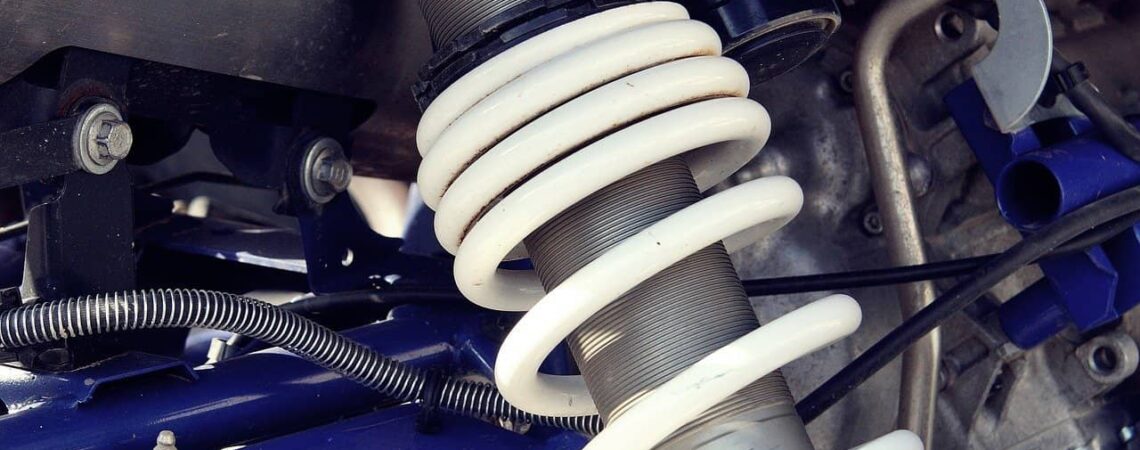
Imagine yourself driving down a winding road, enjoying the thrill of the journey. Suddenly, you hit a pothole, and your car jolts violently, making you lose control momentarily. This unsettling experience highlights the significance of a well-functioning suspension system in your vehicle.
A car’s suspension plays a crucial role in ensuring a smooth and safe ride, enhancing both comfort and handling.
Whether driving on smooth highways or rough terrains, having the best suspension specialists Australia, can help you appreciate the importance of maintaining this essential component.
This article will dig deeper into what you need to know about car suspension.
4 Components of Car Suspension
Understanding your car suspension well ensures a safe and smooth driving experience. Below are four components of a car suspension that work together to provide a smooth and controlled ride.
1. Springs
Springs are like the shock absorbers of bumps and uneven surfaces. They help absorb the impact and provide support to your car’s weight.
There are different types of springs, such as coil springs (like a tightly coiled metal rope), leaf springs (composed of stacked metal strips), and torsion bars (twisted metal bars).
2. Shock Absorbers
Also known as dampers, this component of car suspension work alongside the springs to control the up-and-down movement of the suspension. They ensure your car’s body doesn’t bounce excessively after encountering bumps or potholes.
Shock absorbers use hydraulic fluid or gas to dampen the vibrations and oscillations, providing a smoother and more stable ride.
3. Control Arms
Control arms, also called A-arms, are crucial components that connect the suspension system to the car’s chassis or frame.
They are usually shaped like triangles and help maintain the correct wheel alignment, stability, and handling. Additionally, they assist in absorbing the forces generated during cornering or braking.
4. Anti-Roll Bars
Anti-roll bars, or sway bars, are designed to reduce body roll or lean during cornering. They are usually connected to the suspension components on both vehicle sides.
When your car turns, the anti-roll bars transfer some weight from the outer and inner wheels, minimizing body roll and improving stability.
Common Issues of Having Car Suspensions
Car suspensions, like any other mechanical system, can experience common issues that affect the vehicle’s performance and ride quality. Here are a few of these common suspension problems:
1. Suspension Noise
These noises can range from clunks, squeaks, or rattles. They are often caused by worn-out or damaged components such as bushings, ball joints, or suspension mounts.
Addressing these noises is important as they may indicate potential safety concerns or further damage if left unattended.
2. Uneven Tire Wire
When your suspension system is not functioning correctly, it can cause uneven tire wear. Remember, tires wear down more in certain areas than evenly across the tread.
Improper wheel alignment, worn-out suspension components, or incorrect tire pressure can lead to this issue.
3. Excessive Body Rolls
Body roll refers to the leaning or swaying motion of the car when going around corners or during sudden maneuvers.
Excessive body roll can make the car feel unstable and affect handling. Worn-out or weak springs, faulty shock absorbers, or inadequate anti-roll bar function often cause it.
4. Bumpy or Harsh Rides
If you notice that your vehicle’s ride feels excessively bumpy or harsh, it may be a sign of suspension issues.
Worn-out shock absorbers or struts, which dampen the vehicle’s movement, can cause this problem. A compromised suspension can result in an uncomfortable ride, reduced control, and decreased stability.
Have Your Car Suspension Now!
Remember, a neglected suspension system can lead to further damage, compromised handling, and even safety risks.
By taking the initiative to have your car suspension inspected and maintained, you’re investing in the longevity of your vehicle and your peace of mind.
Seek the expertise of a trusted mechanic or suspension specialist who can diagnose the problem and provide the necessary solutions.
They have the knowledge and experience to get your suspension back in top shape, ensuring optimal performance and safety on the road.


